第20章
Goods given as a Value, ought for their other Uses to be valuable, equal to what they are given for. Silver was barter'd as it was valued for its Uses as a Metal, and was at first given as Money, according to the value it had in barter. Silver has acquir'd an additional Value since, that additional Use it was applyed to occasioning a greater Demand for it; which Value People have not been sensible of, the greater Quantity making it fall more: But it has kept it from falling so low as it would have fall'n, if it had not been used as Money, as the same Quantity had come into Europe.
'Tis uncertain how long Silver may keep that additional Value: If England set up a Money of another kind, Silver will not fall to one Third, because used in other places as Money; but the lesser Demand besides the ordinary fall from the greater Quantity coming into Europe, would occasion an extraordinary fall perhaps of 10 per cent:
If the new Money then in England did not encrease beyond the Demand for it, it would keep its Value, and be equal to so much more Silver at Home or Abroad than it was Coin'd for; as Silver would be of less Value, from the ordinary and extraordinary fall.
If England chang'd their Money, other Countries may do the same.
If Holland alone kept to Silver Money, the Price of Silver may be supposed to fall immediately 50 per cent, from the lesser Demand for it as Money. And a 100 lib. in Holland be worth no more than 50 lib.
new Money in England, whether sent in Specie or remitted by Exchange;and as more Silver came into Europe, it would fall yet lower, because of its greater Quantity.
It may be Objected, That in Scotland the Quantity of Goods are proportioned to the Demand as they have been some Years ago; and Money scarcer, the Demand for it the same or greater. So if Goods and Money are higher or lower in Value, from their greater or lesser Quantity in proportion to the Demand for them; Money should by its great scarcity be more valuable, and equal to a greater Quantity of Goods. Yet Goods differ little in Price, from what they were when Money was in greater Quantity.
To this is Answered, The Value of Goods or Money differs, as the Quantity of them or Demand for them changes in Europe; not as they change in any particular Country. Goods in Scotland ar at or near the same Value with Goods in England, being near the same in Quantity in proportion to the Demand as there: Money in Scotland is not above one 40th part of the Money in England, proportion'd to the People, Land, or Product; nor above a 10th part proportion'd to the Demand. If Scotland was incapable of any Commerce with other Countries, and in the state it is now, Money here would Buy 10 times the Quantity of Goods it does in England, or more: But as Scotland has Commerce with other Countries, tho Money were much scarcer than now, or in much greater Quantity than in England; if there were but 10000 lib. in Scotland, or a Million, the Value of Goods would not differ above 3per cent, from what they were abroad, because for that difference Goodsm may be Exported, or Imported. Prohibitions may raise the difference higher.
Brittannia Languens and others on Trade and Money, are of Opinion that Goods in any Country fall in Value, as Money in that particular country grows scarcer. That, if there was no more than 500 lib. in England, the yearly Rent of England would not exceed 500 lib. and an Ox would be sold for a penny. Which Opinion is wrong, for as the Ox might be Exported to Holland, it would give a Price in England equal or near to that it would give in Holland: If Money were supposed to be equally scarce in Holland, and other places as in England, the Ox might give no more than a Penny, but that Penny would have a value then equal to 5 lib. now; because it would purchase the same Quantity of Goods in England or other places, that 5 lib. does now.